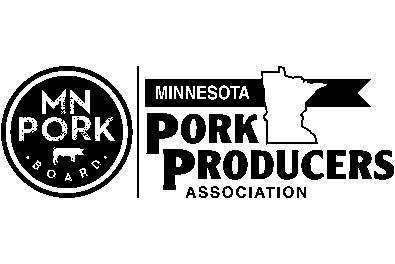On-Farm Sustainability Reports provide metrics that are third-party verified and can track progress at the industry level.
April 5, 2022

The Minnesota Pork Board has shared a new Collective Vision for More Sustainable Pork Production in Minnesota. The white paper draws attention to the current and future state of social, environmental and economic sustainability for the second largest pork producing state in the United States.
Included are industry-leading goals and metrics for a holistic definition of sustainability. The pork industry endeavors to lead agriculture by setting substantial goals in the areas of environment, animal wellbeing, food safety, public health, and people and communities.
"We've outlined what pig farmers have been doing to improve their practices and care for their pigs, people and the environment," says David Preisler, Minnesota Pork CEO. "We know there are big challenges ahead when it comes to social, economic and climate issues. We've outlined the measurable goals and needed resources and support that will help farmers achieve those goals."
The pork industry's approach to sustainability addresses the key areas required for a sustainable and viable farm. Through the adoption of practices such as nutrient management plans, reduced tillage and cover crops, farmers can continue to raise pigs and provide high-quality food, while also making the most productive use of resources, providing opportunities for rural communities and protecting natural resources.
Not only has the industry set measurable sustainability goals, it also has programs in place to track improvement by using on-farm data. The On-Farm Sustainability reports program, funded by the Pork Checkoff, comes at no extra cost to pig farmers wishing to participate. The reports establish individual baselines and contribute to an overall tracking system for Minnesota and all of U.S. pork production. By using a third party to validate and generate reports, farmers, consumers and the supply chain can have confidence in the metrics used to track progress.
"We need benchmarks to better track and monitor progress utilizing on-farm data," says Randy Spronk, a Minnesota pig farmer. "The On-Farm Sustainability Reports provide metrics that are third-party verified and can track progress at the industry level, while also giving farmers individualized insights that help them make better decisions specific to their farm for the future of pork production."
The white paper was compiled with input from many stakeholders including Minnesota pig farmers, the Minnesota Pork Board, government leaders and regulators, and The Nature Conservancy. TNC has been a key partner for Minnesota Pork as they look to spark further adoption of practices that will environmentally, socially and economically benefit farmers and food production.
"Soil health practices reduce carbon dioxide emissions and improve the health of our rivers, lakes and streams," says Leif Fixen, TNC's agricultural strategy manager in Minnesota, who applauded the Minnesota Pork Producers for setting the ambitious goal of cutting 40% of the industry's carbon dioxide emissions by 2030. "We're excited to work with the Minnesota Pork Board and its farmers. We hope other producers in Minnesota follow their lead and take action to help address the climate challenge and protect our waters."
Implementing cover cropping, reduced tillage and improved nutrient management across Minnesota's farmland can reduce carbon dioxide emissions by more than 10 million metric tons per year in Minnesota, according to TNC's 2021 report, Nature and Climate: Solutions for Minnesota. That is equivalent to removing more 2.2 million passenger vehicles from the road.
Source: Minnesota Pork, which is solely responsible for the information provided, and wholly owns the information. Informa Business Media and all its subsidiaries are not responsible for any of the content contained in this information asset.
You May Also Like



